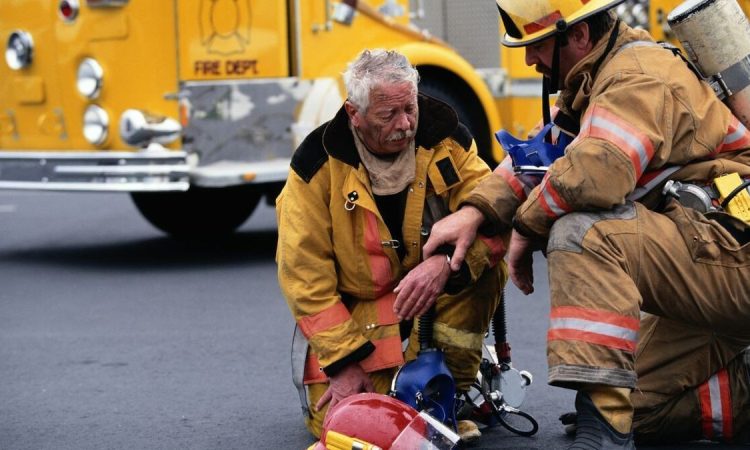
Takeaways
- Florida’s fire service prioritizes mental health with programs addressing PTSD, burnout, and high-stress scenarios.
- Flexible schedules like the 24/72 model improve firefighter work-life balance and overall satisfaction.
- Leadership and resilience training foster a supportive culture, empowering firefighters to manage mental health effectively.
Firefighters in Florida face immense challenges due to their demanding and high-risk jobs. Exposure to trauma, long shifts, and emergencies can significantly impact mental health. Addressing stress, PTSD, and burnout is vital for firefighter well-being and safety. Florida’s fire service prioritizes mental health through innovative programs and targeted initiatives. These efforts help firefighters manage stress and maintain a healthy work-life balance.
Understanding the Mental Health Challenges of Firefighting
Firefighting involves long hours, dangerous situations, and intense physical and emotional demands. Frequent exposure to traumatic events can lead to anxiety and post-traumatic stress disorder. Many firefighters experience depression or struggle with substance use due to job stress. Studies reveal a high prevalence of mental health challenges in the fire service. Addressing these issues is essential for ensuring a resilient workforce.
Current Initiatives for Mental Health Support
Departmental Programs
Fire departments in Florida implement tailored mental health programs to support their teams. Peer support teams provide confidential, firsthand assistance to firefighters in need. Counseling services offer personalized strategies for managing stress and trauma effectively. These initiatives foster a supportive environment, helping firefighters recover and thrive.
Statewide Resources
Florida’s fire service collaborates on mental health programs benefiting departments across the state. The Florida Firefighter Safety and Health Collaborative shares tools and training for emotional wellness. Departments use these resources to build protocols promoting resilience and mental health.
Community and Nonprofit Efforts
Nonprofit organizations enhance firefighter mental health through innovative services and programs. The 2nd Alarm Project® provides evidence-based resiliency tools and emotional support resources. Community partnerships strengthen these efforts, ensuring firefighters and their families receive essential care.
Innovative Work-Life Balance Solutions
Florida fire departments explore flexible schedules to improve firefighter work-life balance. A 24/72 schedule offers 24-hour shifts followed by 72 hours off. This approach reduces burnout and allows firefighters more time with loved ones. Departments adopting these models report higher retention rates and employee satisfaction. Flexible policies empower firefighters to recharge and focus on their well-being. Advanced courses like Florida fire officer certification guide leaders in creating balanced, effective teams.
Training and Education for Resilience
Resilience training equips firefighters with tools to handle high-stress situations effectively. Programs teach coping techniques, stress management, and strategies for post-traumatic growth. Departments offer workshops fostering emotional wellness and mental strength. Continuous education helps firefighters build a supportive culture. Opportunities like Fire Instructor 1 Online enhance skill development and leadership capabilities.
The Role of Leadership in Promoting Mental Health
Leaders play a critical role in prioritizing firefighter mental health and workplace well-being. Open communication and supportive leadership create a culture of trust and safety. Leaders who promote wellness programs empower their teams to seek help when needed. Certifications like Fire Officer certification prepare leaders to effectively manage teams and foster resilience. Highlighting successful examples encourages other departments to adopt similar initiatives.
Overcoming Barriers to Mental Health Care
Firefighters face stigma and barriers when accessing mental health support services. Departments actively work to normalize seeking help and encourage proactive self-care practices. Expanding access to counseling and peer support makes care more approachable and effective.
Frequently Asked Questions
What mental health resources are available to Florida firefighters and their families?
Firefighters and their families can access peer support programs and professional counseling services. Community organizations also provide workshops and emotional health resources.
How can firefighters manage work-life balance while maintaining operational readiness?
Flexible scheduling models like 24/72 shifts allow firefighters more time to rest and recharge. Departments encourage healthy habits and teamwork to support work-life balance.
What are the early signs of burnout or PTSD that firefighters should watch for?
Early signs include difficulty sleeping, irritability, or avoiding tasks that feel overwhelming. Persistent sadness or withdrawal may also signal the need for support.
Florida’s Roadmap to a Healthier Fire Service Workforce
Florida continues advancing efforts to enhance firefighter mental health and work-life balance. Departments collaborate to create sustainable programs and share proven strategies. Strengthening partnerships among fire services, nonprofits, and communities ensures long-term success. Prioritizing firefighter wellness fosters a resilient, capable workforce ready to serve.
References
Increasing the Focus on Fire Service Behavioral Health
Published by the U.S. Fire Administration, this article discusses the importance of prioritizing mental health within the fire service, highlighting statistics and initiatives aimed at supporting firefighter well-being.
UCF RESTORES Receives $1.4 Million to Expand Support, Suicide Prevention Training for First Responders
The University of Central Florida details a significant grant awarded to enhance mental health support and suicide prevention training for first responders, including firefighters, across Central Florida.
City of Gainesville and Fire Rescue Historic Agreement on Work Schedule
The City of Gainesville announces a new 24/72 shift schedule for firefighters, aiming to improve work-life balance and increase job satisfaction among fire rescue personnel.




